|
In 2006 Canadian filmmaker Brent Leung embarked on a two year journey, spanning five continents, to interview the world’s leading authorities on HIV/AIDS. His quest took him to China, Australia, South Africa, Western Europe, Canada, and the United States, where he sought out the world's foremost scientists, doctors, advocates and activists; the men and women who have laid the foundation for everything we know (or think we know) about HIV/AIDS. These one-on-one interviews, coming more than 25 years after HIV and AIDS were first identified, are candid, revealing, at times disturbing and shocking. The information brought to light in these encounters will lead you to rethink all the conventional wisdom , as the story of HIV/AIDS is rewritten before your very eyes.
|
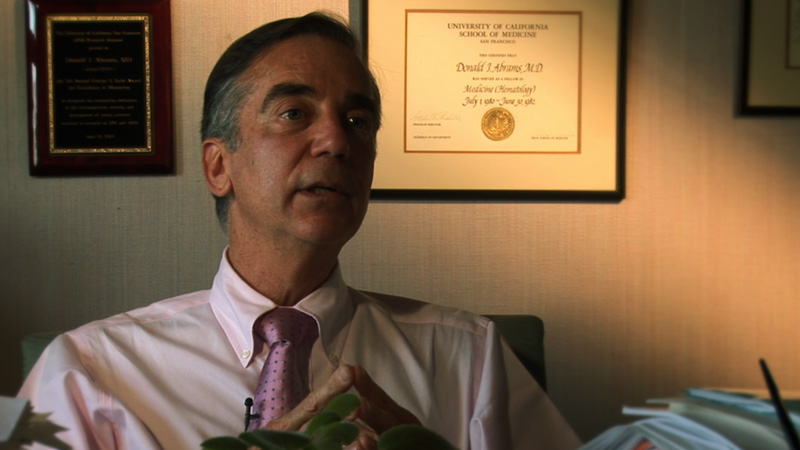
Donald Abrams, MD
San Francisco, CA, USA
Chief, Hematology-Oncology, San Francisco General Hospital
Dr. Donald Abrams is a Professor of Clinical Medicine at the University of California, San Francisco. He is also the Chief of Hematology‐Oncology at San Francisco General
Hospital, the Director, Integrated Oncology Research Program at the Osher Center for Integrative Medicine, and a practitioner at the university's Comprehensive Cancer Center
Dr. Abrams was one of the first physicians in San Francisco to treat AIDS patients; and his pioneering efforts were documented in Randy Schilts's book, And the Band Played On (1987).
Abrams, who has long been in the forefront of HIV/AIDS research and treatment, stepped down from the HIV Clinic at San Francisco General Hospital in August 2006 to devote more time to integrative medicine and oncology.
Source:
http://www.reachmd.com/xmradioguest.aspx?pid=1343
http://www.ucsfhealth.org/adult/cgibin/prd.cgi?action=DISPLAYDOCTOR&doctorid=28856
Contact Info:
Web: http://medicine.ucsf.edu/hemonc/faculty/donald_abrams.html
E-mail:
This e-mail address is being protected from spambots. You need JavaScript enabled to view it
|
|
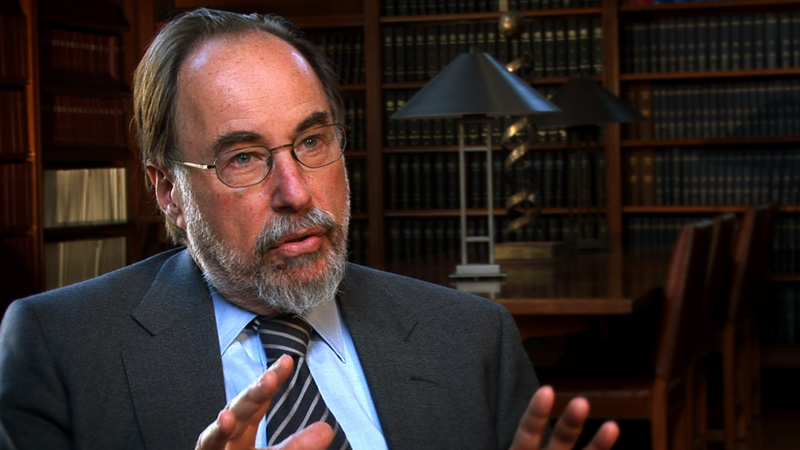
David L. Baltimore,
David L. Baltimore is an American biologist, university administrator, and Nobel laureate in Physiology or Medicine. He served as president of the California Institute of Technology (Caltech) from 1997 to 2006, and is currently the Robert A. Millikan Professor of Biology at Caltech. He is as well the Chairman of the Board of Directors of the American Association for the Advancement of Science.
Dr. Baltimore devised a classification for viruses that has become a world standard. First defined in 1971, the Baltimore classification system places viruses into one of seven groups depending on a combination of their nucleic acid (DNA or RNA), strandedness (single-stranded or double-stranded), sense, and method of replication. Other classifications are determined by the disease caused by the virus or its morphology, neither of which are satisfactory due to different viruses either causing the same disease or looking very similar.
In 1975, at the age of 37, he shared the Nobel Prize for Physiology or Medicine with Howard Temin and Renato Dulbecco for “discoveries concerning the interaction between tumor viruses and the genetic material of the cell." At that time, Baltimore's greatest contribution to virology was his discovery of reverse transcriptase (RTase or RT), an enzyme essential for the reproduction of retroviruses such as HIV.
Baltimore has influenced national policy concerning recombinant DNA research and the AIDS epidemic. He has trained many doctoral students and postdoctoral fellows, several of whom have gone on to notable and distinguished research careers.
Source:
http://nobelprize.org/nobel_prizes/medicine/laureates/1975/baltimore-autobio.html
http://en.wikipedia.org/wiki/David_Baltimore
http://en.wikipedia.org/wiki/Virus_classification
Contact Info:
Web: http://biology.caltech.edu/Members/Baltimore
E-mail:
This e-mail address is being protected from spambots. You need JavaScript enabled to view it
|
|
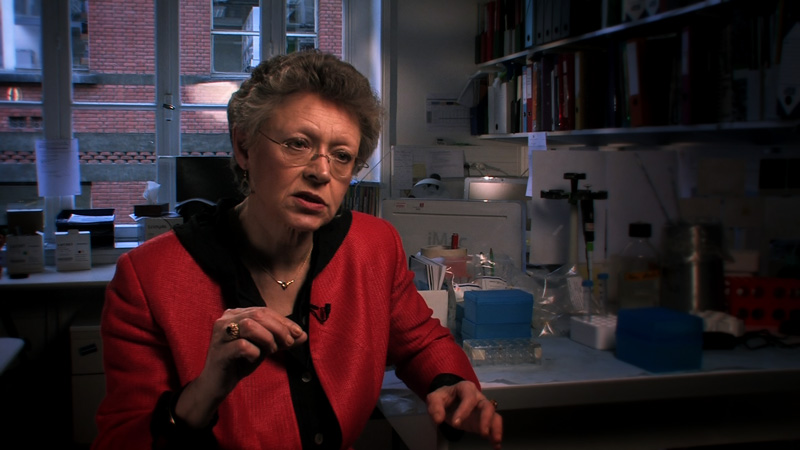 Françoise Barré-Sinoussi, PhD Françoise Barré-Sinoussi, PhD
Paris, France
2008 Nobel Prize Winner for Discovering HIV
Director, Regulation of Retroviral Infections Unit,
Institut Pasteur
Françoise Barré-Sinoussi is a French virologist and director of the Unité de Régulation des Infections Rétrovirales at the Institut Pasteur in Paris, France. Barré-Sinoussi performed some of the fundamental work in the identification of the human immunodeficiency virus (HIV) as the cause of AIDS. In 2008, she was awarded the Nobel Prize in Physiology or Medicine, together with her team leader and associate, Luc Montagnier, for their discovery of HIV.
Barré-Sinoussi has actively contributed to several scientific societies and committees at the Institut Pasteur as well as to other AIDS organizations, such as the National Agency for AIDS Research in France. She has also been involved at an international level, notably as a consultant to the World Health Organization and UNAIDS. Since the 1980s, Barré-Sinoussi has initiated collaborations with developing countries whereby she has managed multidisciplinary networks with dedication. She constantly works on establishing permanent links between basic research and clinical research with the aim of achieving concrete improvements in the areas of prevention, clinical care, and treatment.
She is co-author of Le SIDA en Questions ("AIDS Issues") with Jean-Claude Chermann and Willy Rozenbaum. (1987)
Source:
http://en.wikipedia.org/wiki/Fran%C3%A7oise_Barr%C3%A9-Sinoussi
http://www.nndb.com/people/529/000176998/
Contact Info:
Web: http://www.pasteur.fr/ip/easysite/go/03b-000028-01v/regulation-of-retroviral-infections/regulation-of-retroviral-infections
E-mail:
This e-mail address is being protected from spambots. You need JavaScript enabled to view it
|
|
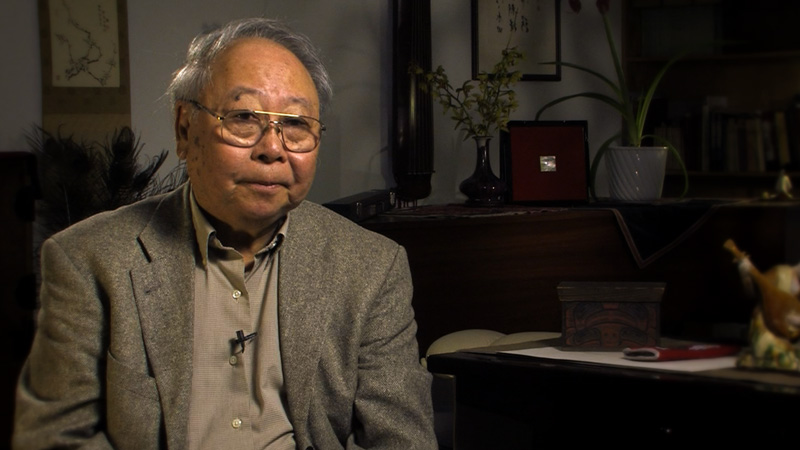 James Chin, MD, MPH James Chin, MD, MPH
Berkeley, CA, USA
Epidemiologist
James (Jim) Chin has been at the forefront of public health epidemiology for decades. He works in public health surveillance and prevention of communicable diseases. He has studied the AIDS pandemic from the early 1980s in California – where he was responsible for surveillance and control of communicable diseases – to the late 1980s at the World Health Organization in Geneva, Switzerland, where he was responsible for developing the methods and guidelines for global and regional HIV/AIDS surveillance. During his public health career, he has held leadership positions at state, national, and International organizations and received recognition for his work as an infectious disease epidemiologist. Since his resignation from the WHO Global Programme on AIDS in 1992, he has worked as an independent consultant for different international agencies to evaluate the patterns and prevalence of HIV in developing countries – primarily in Africa and Asia.
Dr. Chin’s book The AIDS Pandemic: The Collision of Epidemiology with Political Correctness (2006), takes a critical look at HIV/AIDS estimates and the international response to AIDS.
Source:
http://en.wikipedia.org/wiki/James_Chin
Contact Info:
Web: http://sph.berkeley.edu/faculty/chin.php
Web: http://www.theaidspandemic.com/
E-mail:
This e-mail address is being protected from spambots. You need JavaScript enabled to view it
|
|
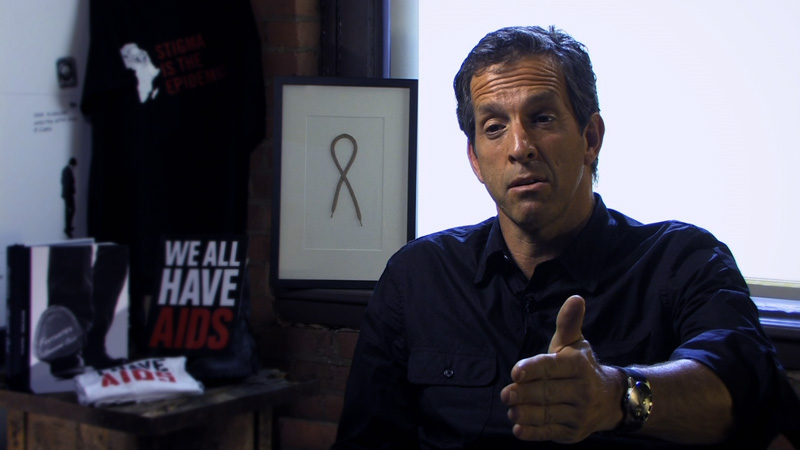 Kenneth Cole Kenneth Cole
New York, NY, USA
Chairman, Board Of Trustees, amfAR
A renowned American fashion designer, founder and chairman of Kenneth Cole Productions, Inc., Kenneth Cole believes that “it is great to be known for your shoes. It is even better to be recognized for your soul.”
Kenneth Cole joined amfAR’s board of directors in July 1987 and became vice chairman in April 2002 and chairman of the board on World AIDS Day, December 1, 2004. Kenneth designs and donates most of amfAR’s annual advertising creative, including the outdoor campaign, which first appeared in 1996. He donates a generous portion of his company’s retail sales on World AIDS Day to amfAR each year and has initiated public awareness efforts annually since 1985.
Kenneth received amfAR’s Award of Courage (November 2000) at the Foundation’s annual Seasons of Hope fundraiser in observance of World AIDS Day.
Source:
http://www.amfar.org/login.aspx?id=5550&terms=Kenneth+Cole
Contact Info:
Web: http://www.amfar.org/community/article.aspx?id=5550
E-mail:
This e-mail address is being protected from spambots. You need JavaScript enabled to view it
|
|
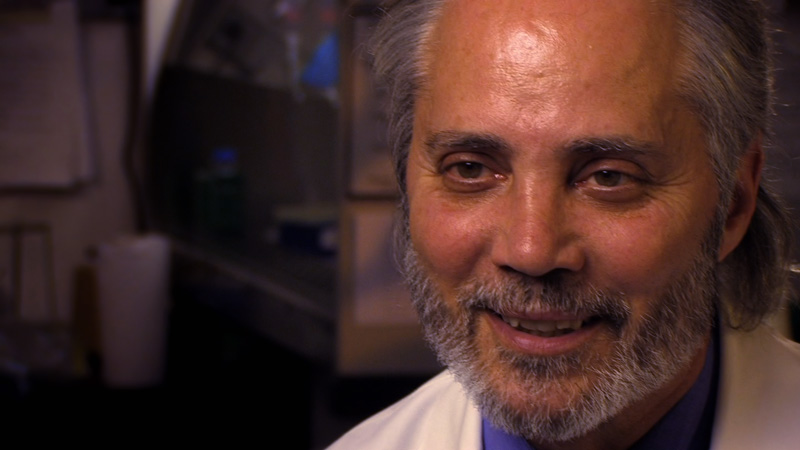 Niel Constantine, PhD Niel Constantine, PhD
Baltimore, MD, USA
Director, Clinical Immunology, Institute of Human Virology,
University of Maryland Medical System
Dr. Niel T. Constantine, a professor in the U. of Maryland Department of Pathology, is a prominent international consultant for laboratory- strengthening activities. His book Retroviral Testing and Quality Assurance, co-authored by Rebecca D. Saville and Elizabeth M. Dax (2005), is used in laboratories throughout the world.
After obtaining a degree in Medical Technology, he completed his Ph.D. in Pathology at the University of Maryland in 1981. He spent three years at the U.S. Naval Medical Research Unit #3 in Cairo, Egypt where he established a laboratory for HIV surveillance that became a WHO Collaborating Centre for HIV in the Eastern Mediterranean Region. Returning to the University of Maryland in 1990, he was appointed Director of the Clinical Immunology Laboratory at the Medical Systems Hospital, where a variety of testing is performed, including serological HIV tests and CD4 T-cell counts for HIV patient care.
In 1993, Dr. Constantine was recruited by the WHO in Geneva, Switzerland, where he worked with the Global AIDS Programme’s Diagnostics Unit in establishing research protocols for a number of countries, and addressing issues in HIV diagnostics. In 1996 Dr. Constantine established the Laboratory of Viral Diagnostics, a research unit at the Institute of Human Virology. Currently he and his staff are active in providing laboratory building and quality assurance for the U.S. President’s Emergency Plan for AIDS Relief program (PEPFAR) in Nigeria.
Source:
http://medschool.umaryland.edu/FACULTYRESEARCHPROFILE/viewprofile.aspx?id=2207
http://pipl.com/directory/people/Niel/Constantine
Contact Info:
Web: http://www.ihv.org/about/bios/constantine.html
Web: http://medschool.umaryland.edu/FACULTYRESEARCHPROFILE/viewprofile.aspx?id=2207
E-mail:
This e-mail address is being protected from spambots. You need JavaScript enabled to view it
|
|
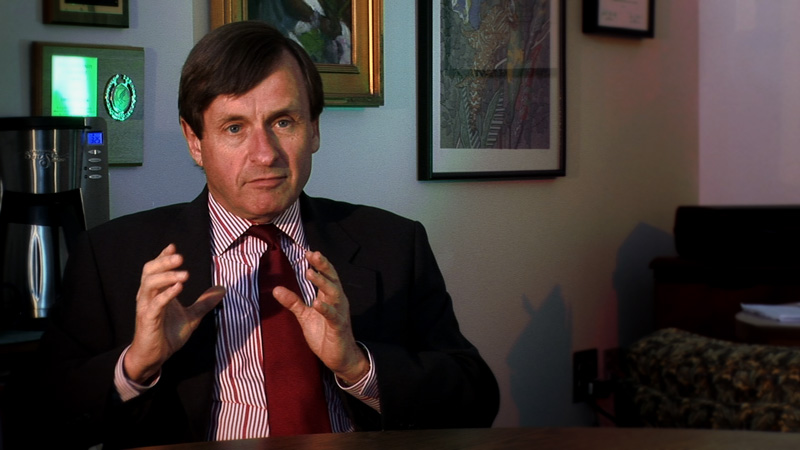 James Curran, MD James Curran, MD
Atlanta, GA, USA
Dean, Rollins School of Public Health, Emory University
Dr. James Curran has been Dean and Professor of Epidemiology at the Rollins School of Public Health of Emory University since 1995. He also serves as Director of the Emory Center for AIDS Research and holds joint appointments in the Emory School of Medicine and the Nell Hodgson Woodruff School of Nursing.
In 1971, Dr. Curran began his career with the Centers for Disease Control and Prevention (CDC). He served in leadership positions in CDC's HIV/AIDS research and prevention activities from 1981 through 1995 and reached the rank of Assistant Surgeon General in 1991.
Dr. Curran has authored over 240 publications and serves as a scientific advisor to the National Institutes of Health, the National Academy of Science, the Centers for Disease Control and Prevention, and the World Health Organization among others.
Source:
http://www.icainstitute.org/bio/james_curran.html
Contact Info:
Web: http://www.sph.emory.edu/administrative_dean.php
E-mail:
This e-mail address is being protected from spambots. You need JavaScript enabled to view it
|
|
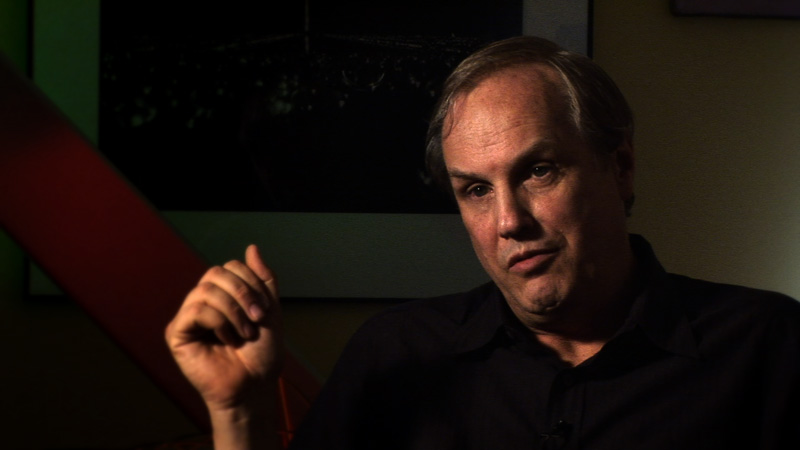 Martin Delaney Martin Delaney
San Francisco, CA, USA
Founding Director, Project Inform
(Dec 9, 1945 - Jan 23, 2009)
Martin Delaney was a prominent advocate for AIDS patients who challenged the government and drug companies to expedite access to experimental treatments in the early days of the epidemic. After watching desperate friends and acquaintances self-medicate with alternative therapies and black market drugs, Martin Delaney co-founded Project Inform in 1985 to share information and accelerate advances in treatment for people living with HIV/AIDS. His original intent was to collect data on whether the medications people were buying in Mexico were helpful or harmful, but he quickly realized patients with life-threatening illnesses, particularly AIDS, weren't being served by the government's normal drug approval process. Delaney and his organization pushed to have AIDS patients take part in clinical trials of new drugs and at one point, held their own controversial clinical trial of an experimental drug outside of the FDA process.
Through Project Inform he also established the National HIV Treatment Hotline, which fields thousands of calls a year from people in need of information about how to treat HIV infections.
A former Jesuit seminarian, Mr. Delaney was a member of the NIH AIDS Research Advisory Committee from 1991 to 1995. In January of 2009 the National Institute of Allergy and Infectious Diseases, a division of the NIH, gave Mr. Delaney its Director’s Special Recognition Award for “extraordinary contributions to framing the H.I.V. research agenda.”
His death from liver cancer on January 23, 2009, was not related to AIDS.
Source:
http://www.pbs.org/wgbh/pages/frontline/aids/interviews/delaney.html
http://www.nytimes.com/2009/01/27/us/27delaney.html?emc=eta1
http://philanthropy.com/news/philanthropytoday/6937/obituary-martin-delaney-aids-activist
http://www.latimes.com/news/obituaries/la-me-martindelaney27-2009jan27,0,7297656.story
Contact Info:
Web: http://www.projectinform.org/
|
|
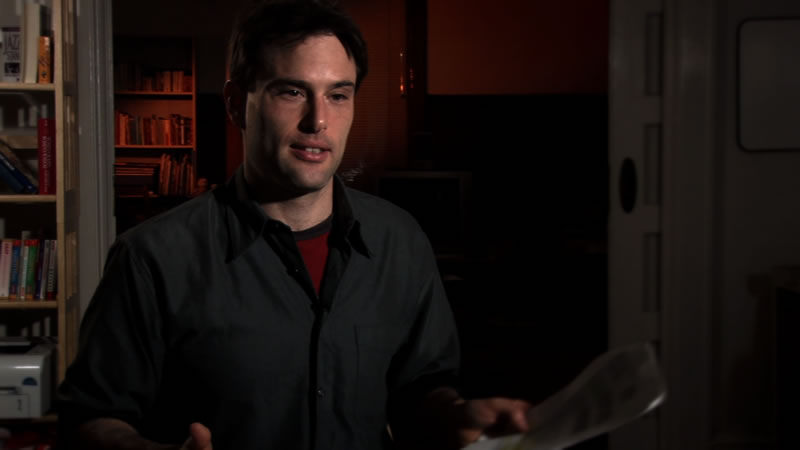 Liam Scheff Liam Scheff
Boston, MA, USA
Independent Journalist
Liam Scheff, an investigative journalist and researcher, broke open the NIH Clinical Trial Scandal in 2004. This internationally-covered story involved government agencies and pharmaceutical companies who together used hundreds of New York City orphans in AIDS drug trials. Scheff reported major illness and several deaths in children due to the drugs, and although the mainstream fervently denied that any deaths were due to drug toxicity, they admit that over 200 children died.
The official report by the VERA institute (who were denied access to all medical records) found that twenty-five children died during the drug studies, that an additional fifty-five children died following the studies (in foster care), and, according to Tim Ross, Director of the Child Welfare program at VERA, 29% of the remaining 417 children who were used in drug studies are now dead (out of a total 532 children who were admitted to have been used).
In his current work, Scheff focuses on revealing what is suppressed from mainstream reporting: The details of the scientific literature regarding medical tests and drugs, as well as the revolutionary ideas now being suppressed by a hierarchical and monied scientific elite.
Scheff has been published by the New York Press, LA Citybeat, LewRockwell.com, Boston’s Weekly Dig, Salvo, Hustler and the Guerrilla News Network, among others. He hosts a podcast, is a regular contributor to radio talk shows, a contributing investigator at OMSJ.org, and the founder of Reduce the Burden.org.
Source:
http://www.Liam Scheff.com
|
|
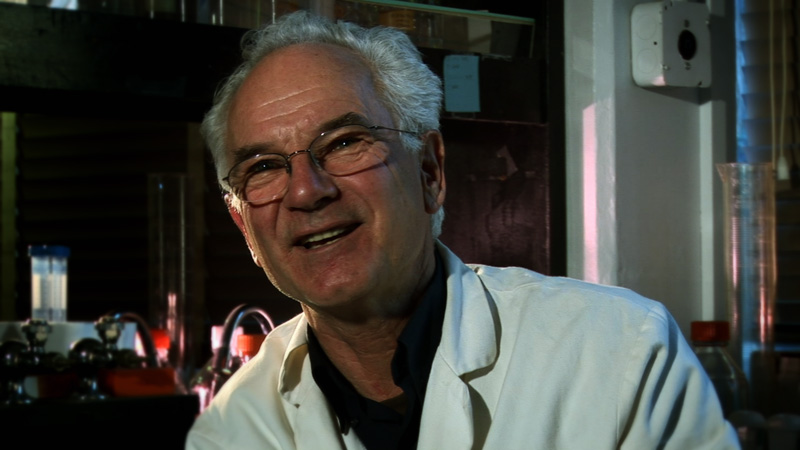 Peter Duesberg, PhD Peter Duesberg, PhD
Berkeley, CA, USA
Professor of Molecular and Cell Biology
Peter H. Duesberg is a Professor of Molecular and Cell Biology at the University of California, Berkeley. He isolated the first cancer gene through his work on retroviruses in 1970, and mapped the genetic structure of these viruses. This, and his subsequent work in the same field, resulted in his election to the National Academy of Sciences in 1986. He is also the recipient of a seven-year Outstanding Investigator Grant from the National Institutes of Health (NIH).
On the basis of his experience with retroviruses, Duesberg has challenged the virus‐AIDS hypothesis in the pages of such journals as Cancer Research, Lancet, Proceedings of the National Academy of Sciences, and The New England Journal of Medicine. Beginning in 1987 he has instead proposed the hypothesis that the various American/European AIDS diseases are brought on by the long‐term consumption of recreational drugs and/or AZT itself, which is prescribed to prevent or treat AIDS. His book, Inventing the AIDS Virus (1996), was described by its New York Times reviewer as “an assault in Mr. Duesberg's war on what he perceives to be a monolithic scientific establishment.”
Source:
www.duesberg.com/
http://en.wikipedia.org/wiki/Inventing_the_AIDS_Virus
Contact Info:
Web: http://mcb.berkeley.edu/index.php?option=com_mcbfaculty&name=duesbergp
Web: http://www.duesberg.com/
E-mail:
This e-mail address is being protected from spambots. You need JavaScript enabled to view it
|
|
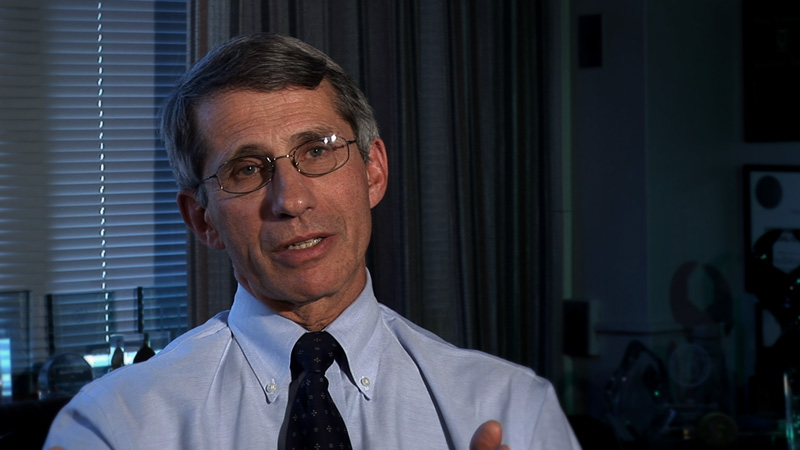 Anthony S. Fauci, MD Anthony S. Fauci, MD
Bethesda, MD, USA
Director, National Institutes of Allergy and Infectious Diseases
Anthony S. Fauci is an immunologist who has made substantial contributions to research in the areas of AIDS and other immunodeficiencies, both as a scientist and as the head of the National Institute of Allergy and Infectious Diseases (NIAID).
The Director of NIAID since 1984, Dr. Fauci oversees basic and applied research to prevent, diagnose, and treat infectious diseases such as HIV/AIDS and other sexually transmitted infections, influenza, tuberculosis, malaria and illness from potential agents of bioterrorism. Dr. Fauci serves as a key advisor to the White House and Department of Health and Human Services on global AIDS issues.
Dr. Fauci has made many contributions to basic and clinical research on the pathogenesis and treatment of immune-mediated and infectious diseases. He has pioneered the field of human immunoregulation by making a number of basic scientific observations that serve as the basis for current understanding of the regulation of the human immune response. In addition, Dr. Fauci is widely recognized for delineating the precise mechanisms whereby immunosuppressive agents modulate the human immune response. He has developed effective therapies for formerly fatal inflammatory and immune-mediated diseases such as polyarteritis nodosa, Wegener's granulomatosis, and lymphomatoid granulomatosis. A 1985 Stanford University Arthritis Center Survey of the American Rheumatism Association membership ranked the work of Dr. Fauci on the treatment of polyarteritis nodosa and Wegener's granulomatosis as one of the most important advances in patient management in rheumatology over the previous 20 years. In 2003, an Institute for Scientific Information study indicated that in the twenty year period from 1983 to 2002, Fauci was the 13th most-cited scientist among the 2.5 to 3 million authors in all disciplines throughout the world who published articles in scientific journals during that time frame
Source:
http://www3.niaid.nih.gov/about/directors/biography/
http://en.wikipedia.org/wiki/Anthony_Fauci
Contact Info:
Web: http://www3.niaid.nih.gov/about/directors/biography/
E-mail:
This e-mail address is being protected from spambots. You need JavaScript enabled to view it
|
|
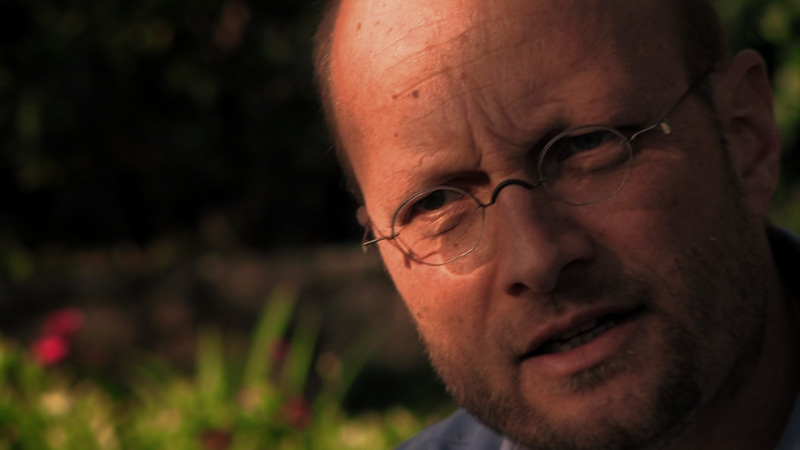 Christian Fiala, MD, PhD Christian Fiala, MD, PhD
Vienna, Austria
Medical Director, Gynmed Clinic
Christian Fiala is a gynecologist and obstetrician currently living in Vienna. Dr. Fiala has extensive clinical experience in Thailand, Uganda and Tanzania. For more than 15 years he has been following critically the discussion on the epidemiological aspects of AIDS. He was a member of President Mbeki's AIDS Advisory Panel in South Africa. Dr. Fiala has published many papers focused on the problems of AIDS in Africa and the definition of AIDS.
Fiala is the author of the book Lieben wir gefaehrlich? - Ein Arzt auf der Suche nach den Fakten und Hintergruenden von AIDS ["Do We Love Dangerously? - A Doctor in Search of the Facts and Background to AIDS"] (1998).
Source:
http://www.nrc.nl/international/Opinion/article1984104.ece/AIDS_are_we_being_deceived
http://www.altheal.org/statistics/fiala.htm
http://www.bmj.com/cgi/eletters/327/7408/184-a
Contact Info:
Web: http://www.virusmyth.com/aids/index/chrfiala.htm
E-mail:
This e-mail address is being protected from spambots. You need JavaScript enabled to view it
|
|
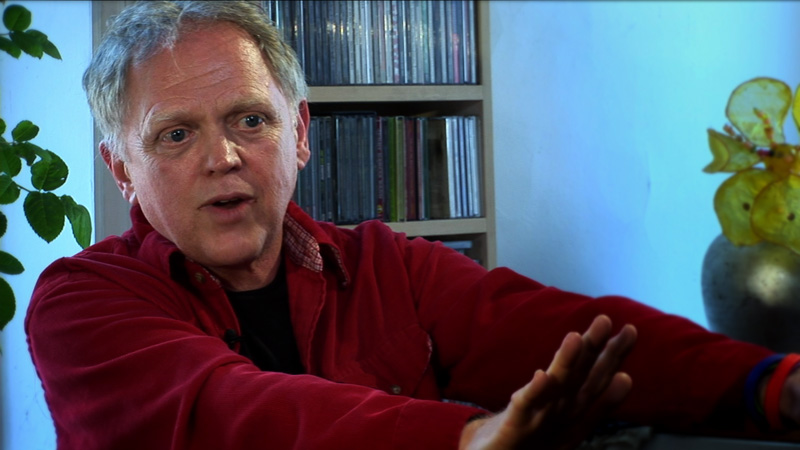 Jim Fouratt Jim Fouratt
New York, NY, USA
Independent Scholar/Cultural Critic/Activist
As a producer, organizer, performer, writer, editor, manager, consultant and man about town, Jim Fouratt has been inciting, shaping, fomenting and provoking American culture for over 40 years. In his own words, “I have been a history maker, club entrepreneur, professional actor, pop culture critic, writer and political activist my entire life.” Fouratt was a founding member of the Gay Liberation Front, HEAL, ACT UP, and a founding board member of the New York Lesbian and Gay Community Services Center.
ACT UP, (AIDS Coalition to Unleash Power) describes itself as “a diverse, non-partisan group of individuals united in anger and committed to direct action to end the AIDS crisis.” ACT UP was effectively formed in March, 1987 at the Lesbian and Gay Community Services Center in New York. ACT UP, while extremely prolific and certainly effective at its peak, suffered from extreme internal pressures over the direction of the group and of the AIDS crisis. In recent years, with the changing nature of the AIDS crisis, ACT UP's membership has dwindled, though many chapters continue to meet.
Fouratt’s commentary and reportage has appeared in such publications as the Village Voice, Rolling Stone, The Advocate, Attitude, OUTWEEK, Gay City News and SPIN (where he was a contributing Editor for 7 years).
Currently his activities include, besides his return to professional acting, the following: A&R consultant in the music industry, political commentator, Internet content producer, Internet radio personality (Radiosexbeat)
Source:
http://www.myspace.com/radiosexbeat
http://en.wikipedia.org/wiki/ACT_UP
Contact Info:
Web: http://www.generationonfire.com/fouratt.html
E-mail:
This e-mail address is being protected from spambots. You need JavaScript enabled to view it
|
|
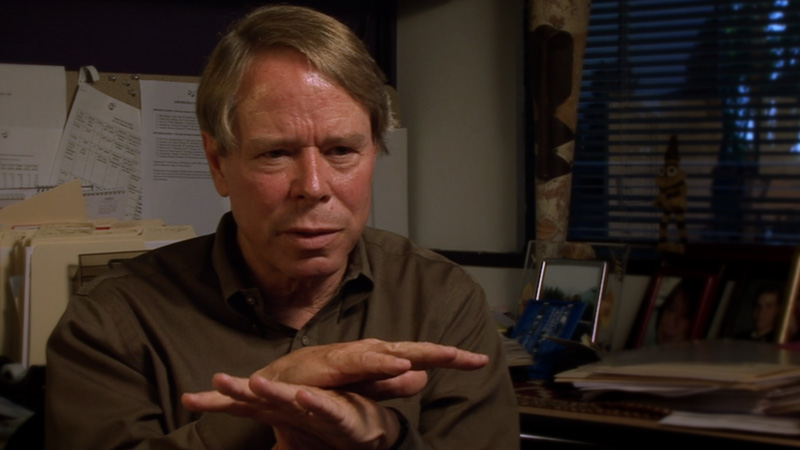 Donald P. Francis, MD, DSc Donald P. Francis, MD, DSc
San Francisco, CA, USA
Director, Global Solutions for Infectious Diseases
As an infectious disease-trained pediatrician and epidemiologist, Donald Francis has more than 30 years experience in epidemic control and vaccines. He spent 21 years working for the US Centers for Disease Control (CDC) focusing on vaccine-preventable diseases. His work in retroviruses began at Harvard, where Francis received his doctorate.
Francis has worked on HIV/AIDS since its emergence in 1981. He initially directed the AIDS laboratory at the CDC and worked closely with the Institut Pasteur to identify the causative virus.
In 1992, he joined Genentech to develop vaccines and also helped found what became the International AIDS Vaccine Initiative. With waning private sector interest in HIV vaccine development, Francis started a new company, VaxGen in 1995, to ensure that an HIV vaccine would be developed. In early 2004 Francis left VaxGen, where he had served as president, to co-found Global Solutions for Infectious Diseases and serves as its chairman and executive director.
Source:
http://en.wikipedia.org/wiki/VaxGen
http://www.vaxgen.com/
http://www.publichealthheroes.org/past_heroes/2008/francis.html
Contact Info:
Web: http://www.gsid.org/
E-mail:
This e-mail address is being protected from spambots. You need JavaScript enabled to view it
|
|
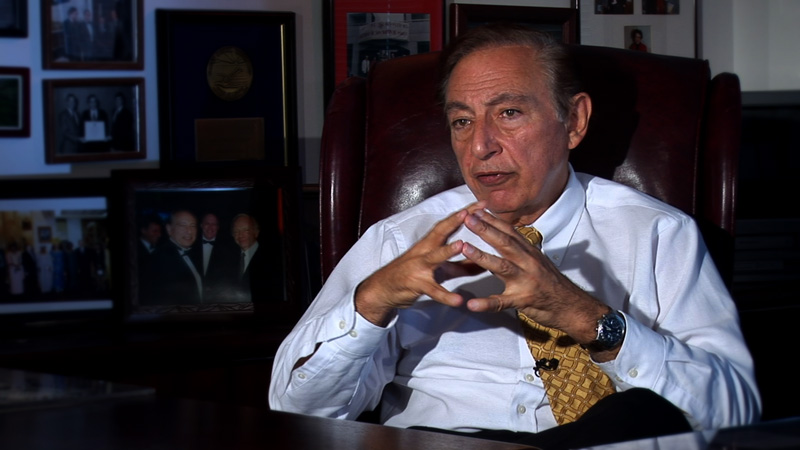 Robert C. Gallo, MD Robert C. Gallo, MD
Baltimore, MD, USA
Director, Institute of Human Virology
The Institute of Human Virology (IHV) was founded and is directed by Robert C. Gallo, the eminent scientist who became world famous in 1984 when Health and Human Services Secretary Margaret Heckler announced HIV was discovered and was the probable cause of AIDS.
Though best known for his co-discovery of HIV, Gallo and his team in the early 80s also pioneered the development of the HIV blood test, which enabled health care workers for the first time to screen for the AIDS virus - leading to a more rapid diagnosis while simultaneously protecting patients receiving blood transfusions. His research also helped physicians develop HIV therapies to prolong the lives of those infected with the virus. In 1996, his discovery that a natural compound known as chemokines can block the HIV virus and halt the progression of AIDS was hailed by Science magazine as one of that year's most important scientific breakthroughs.
Today, Dr. Gallo's work continues at the IHV, a first-of-its-kind virology center that combines the disciplines of research, patient care and prevention programs in a concerted effort to speed the pace of progress. The Institute is a part of the University of Maryland Biotechnology Institute and is affiliated with University of Maryland Medicine.
Prior to becoming director of the Institute in 1996, Gallo spent 30 years at the National Institutes of Health's National Cancer Institute, where he was head of its Laboratory of Tumor Cell Biology. A Connecticut native, his interest in science and medicine was first stirred by the loss of his 6-year-old sister to leukemia when he was just a teen. The physicians who cared for her made a lasting impression, and Gallo would later make scientific research - and the opportunity to help put an end to deadly diseases - his life's work.
Source:
http://www.ihv.org/about/bios/gallo.html
Contact Info:
Web: http://www.ihv.org/
E-mail:
This e-mail address is being protected from spambots. You need JavaScript enabled to view it
|
|
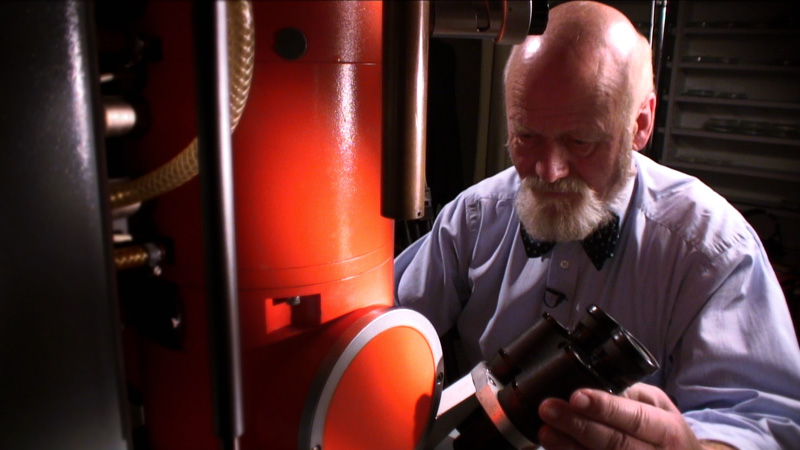 Hans R. Gelderblom, MD, PhD Hans R. Gelderblom, MD, PhD
Berlin, Germany
Electron Microscopist
In 1965, Professor Gelderblom graduated as a Doctor of Medicine (Dr. med.) from Saarland University. For 2 years he trained as a Medical Assistant in virology and clinical specialities-after which he received official permission by the Ministry of Health to work as a general physician.
In 1968 he went to the Max Planck Institute for Virology, Tübingen, where he joined the Retrovirus-Research group and the Central Laboratory for Electron Microscopy. Three years later he moved to the Department of Virology at the Federal Health Institute's Robert Koch Institute (RKI), Berlin. In 1977 he became Head of a newly funded research group, Fine Structure Research in Virology. In 1986 he was made Deputy Head of the Department of Virology, and, after restructuring within the Federal Health Institute ,he became Head of the RKI research group in Electron Microscopy and Imaging in July of 1998.
In 2002 Dr. Gelderblom became head of the RKI Research Group “for rapid diagnosis of biologically relevent infectious agents,” and head of the RKI’s Biosafety Center for handling infectious agents, classified as “ Biosafety Level 4.” This level is required for work with dangerous and exotic agents that pose a high individual risk of aerosol-transmitted laboratory infections, agents which cause severe to fatal disease in humans for which vaccines or other treatments are not available, such as Bolivian and Argentine hemorrhagic fevers, Marburg virus, Ebola virus, Lassa fever, Crimean-Congo hemorrhagic fever, and other various hemorrhagic diseases.
Although officially retired from RKI since May 31, 2004, Dr. Gelderblom has continued his work, editing and teaching at the Institute. His main fields of interest are the fine structure antigenic make-up and cell interactions of human and animal viruses, in particular retroviruses and HIV, and diagnostic electron microscopy in virology.
Dr. Luc Montagnier credits Hans Gelderblom with giving him excellent pictures of HIV. Dr. Gelderblom has published dozens of electron micrographs of HIV.
Source:
http://www.vetscite.org/publish/items/000018/index.html
Correspondence with Dr. Gelderblom, 2009
http://en.wikipedia.org/wiki/Biosafety_level
http://ec.europa.eu/research/health/infectious-diseases/emerging-epidemics/projects/146_en.html
Contact Info:
E-mail:
This e-mail address is being protected from spambots. You need JavaScript enabled to view it
|
|
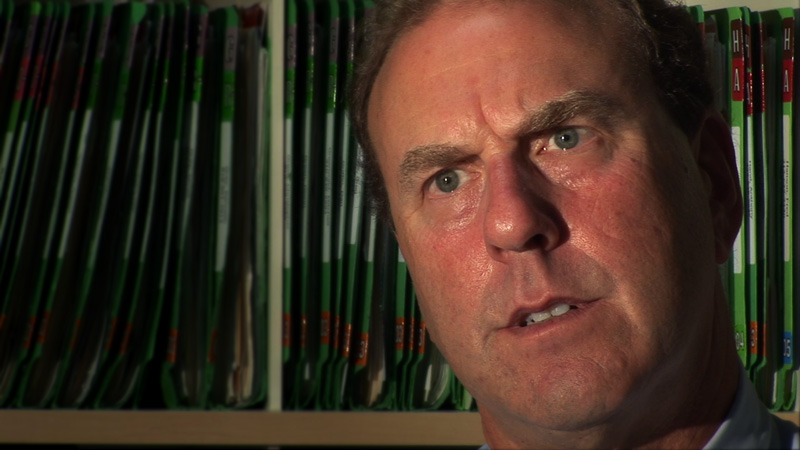 Michael Gottlieb, MD Michael Gottlieb, MD
Los Angeles, CA, USA
Credited as first doctor to diagnose AIDS
A Founding Chairman of amfAR
In 1981 Michael Gottlieb, 33, was a first-year assistant professor at UCLA Medical Center, specializing in immunology. In January 1981, he asked the immunologists-in-training to prowl the wards for "teaching cases." He learned of a young gay man with unexplained fevers, dramatic weight loss, and a severely damaged immune system. His mouth was full of thrush, or candidiasis, which was usually seen in patients with a defect in one particular component of the immune system, the T-lymphocytes. Gottlieb later described a process of reasoning that led him to conclude that that this patient was suffering from some syndrome that had not previously been reported. He discussed the unusual case with his clinical immunology postdoctoral fellows and internal medicine residents. Additional blood tests confirmed a marked deficiency of T-lymphocyte numbers and functions. Then a postdoctoral fellow who was using a series of new monoclonal antibodies to identify subclasses of T-lymphocytes was asked to examine a sample of the patient’s blood and found that the T-cells bearing the surface marker CD4, the “helper”cells, were virtually absent.
Soon thereafter, Gottlieb heard about two patients of Dr. Joel Weisman. Weisman and his partner were gay physicians with a largely gay practice. Both patients had chronic fevers, swollen lymph nodes, diarrhea, and thrush. Gottlieb tested the T-cells of Weisman’s patients and found they had the same abnormality as his original patient.
The fourth case came to Gottlieb through a former student, Wayne Shandera, who had become the CDC’s Epidemic Control Officer in Los Angeles. Gottlieb told him that there was a new disease in gay men that seemed to have something to do with cytomegalovirus (the most frequent disseminated opportunistic infection seen with AIDS) and pneumocystis pneumonia.
Gottlieb would shortly submit his finding to James Curran and the CDC. On June 5, 1981, the CDC published a report of five cases of pneumocystis carinii pneumonia (PCP) among previously healthy young men in their Morbidity and Mortality Weekly Report (MMWR). This became the first publication of what people now refer to as AIDS.
In the early 1980s, Gottlieb treated a growing number of patients with AIDS and continued his clinical research at UCLA, publishing over 50 papers on various aspects of HIV infection and treatment. He obtained one of the earliest National Institutes of Health grants for AIDS research, served on many AIDS-related boards, and became physician to the stars: Rock Hudson, perhaps the most famous of all people with AIDS, was his patient.
In 1985, Gottlieb and Mathilde Krim became the Founding Chairmen of the American Foundation for AIDS Research (amfAR), with Elizabeth Taylor as its Founding National Chairman. AmfAR would make a crucial contribution to AIDS research by supporting innovative projects; it would also help craft AIDS legislation, accelerate research on new treatments, and argue for rapid access to experimental HIV/AIDS drugs.
Source:
http://www.pubmedcentral.nih.gov/articlerender.fcgi?artid=1470620
http://www.washingtonpost.com/wp-dyn/content/article/2006/06/03/AR2006060300452_pf.html
http://www.amfar.org/
http://www.ajph.org/cgi/content/full/96/6/982
Contact Info:
Company: Olympic Medical Center
5901 West Olympic Boulevard
E-mail: Unknown
|
|
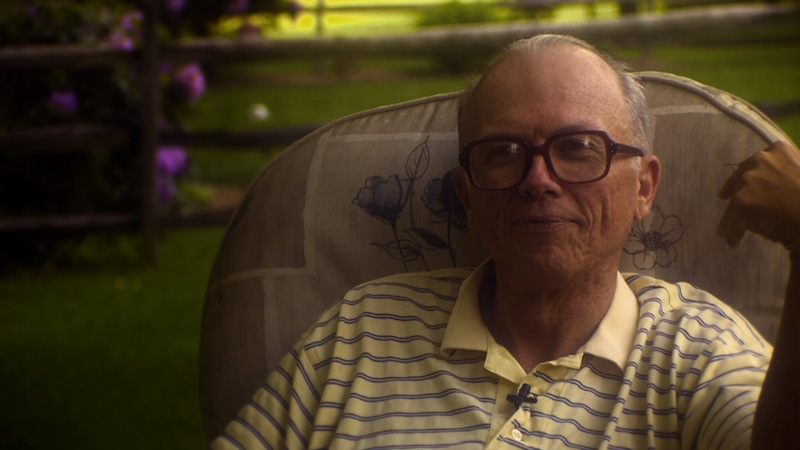 Harry Haverkos, MD Harry Haverkos, MD
Bethesda, MD, USA
Former Associate Director, National Institute on Drug Abuse (NIDA)
Dr. Haverkos began his career in AIDS research as an Epidemic Intelligence Service Officer at the CDC in Atlanta, in 1981. He coordinated the establishment of a national surveillance system for AIDS and participated in the early AIDS studies among homosexual men, prisoners in upstate New York, Haitians in Miami and Haiti, and blood transfusion recipients. In 1984, Haverkos transferred to the National Institutes of Health in Bethesda, MD, where he participated in the establishment of contracts and grants to test antiviral drugs against the AIDS virus, and studies of the opportunistic infections associated with AIDS. In 1986, he transferred to the National Institutes on Drug Abuse (NIDA) in Rockville, MD, where he is worked to stimulate research to prevent transmission of the AIDS virus among drug abusers, their sexual contacts, and children. He was acting director of the Division of Clinical Research, and associate director for AIDS, NIDA. He was more recently a Medical Officer for the Division of Anti-Viral Drug Products, an arm of the US Food and Drug Administration, Rockville MD.
Dr. Haverkos has published papers on the health hazards of consuming nitrite inhalants (poppers) and their connection to Kaposi’s Sarcoma (KS). Dr. Haverkos can be described as a co-factorist or multi-factorist; he believes HIV is a contributing factor, but not sufficient in itself to cause the diseases in the AIDS category. The co-factor theory is supported b Dr. Luc Montagnier, 2008 Nobel Prize recipient for the co-discovery of HIV, along with numerous HIV Scientists world wide.
Source:
http://www.zoominfo.com/people/Haverkos_Harry_48979188.aspx
http://www.vitals.com/doctors/Dr_Harry_Haverkos.html
|
|
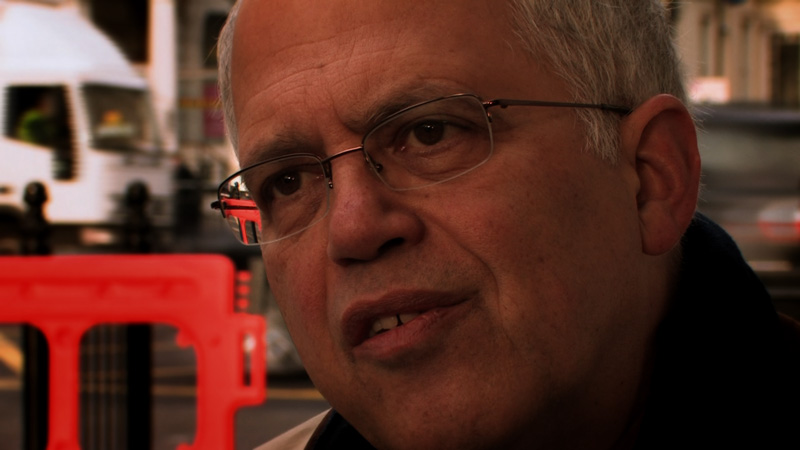 Harold Jaffe, MD Harold Jaffe, MD
Oxford, United Kingdom
Professor of Public Health
Dr. Harold Jaffe received his BA from the University of California, Berkeley and his MD from the University of California, Los Angeles. In 1971, he joined The Centers of Disease Control as a clinical research investigator with the venereal disease control program. In 1981, he became an Epidemic Intelligence Service Officer and joined the CDC Task Force assigned to study the earliest cases of AIDS.
Dr. Jaffe served as Director of the Division of AIDS, STD, and TB Laboratory Research, and as Associate Director for HIV/AIDS in the National Center for Infectious Diseases (NCID). From 1992-1995, Dr. Jaffe served as the Director of NCID's Division of HIV/AIDS, and prior to that he served as the Division's Deputy Director for Science.
Presently, Jaffe is Head of the Department of Public Health at Oxford University, and has helped establish a new MSc course in Global Health Science. His current interests are in international health, HIV/AIDS, and AIDS-related cancers.
Source:
http://aids.about.com/cs/profiles/p/jaffe.htm
http://www.stx.ox.ac.uk/general/fellows/jaffe_harold
Contact Info:
Web: http://www.stx.ox.ac.uk/general/fellows/jaffe_harold
E-mail:
This e-mail address is being protected from spambots. You need JavaScript enabled to view it
|
|
 Criselda Kananda Criselda Kananda
Johannesburgh, South Africa
Talk Radio Host / Motivational Speaker
Criselda Kananda is best known as a talk show host for Metro FM Radio (South Africa), focusing on the health of the body, mind and spirit. She wears other hats too; mother, inspirational speaker, and counselor.
She has been actively involved in the fight for the rights of both the HIV-infected and HIV-negative people. This has compelled her to study immunity and the AIDS progression, and investigate research available on the impact of nutrition and behavior viv-a-vis HIV/AIDS. It’s personal; she was diagnosed with HIV in 1998, and has since lived a healthy, symptom-free life.
Criselda strives to look good at all times, as she believes that HIV has been given such a negative and fearful face; far too many people consider “being invisible” the best way to cope with HIV infection. She teaches a simple way of living a positive life with HIV (or any other condition), and encourages individuals to focus on a personal revolution. To her this means looking after one’s body, mind, and soul, and being responsible for one’s own actions and choices.
Source:
http://www.tvsa.co.za/default.asp?blogname=uzohlalaungowam&ArticleID=9198
http://www.pafound.co.za/news/2008/n0039.html
Contact Info:
Web: http://www.metrofm.co.za/djs/criselda-kananda
|
|
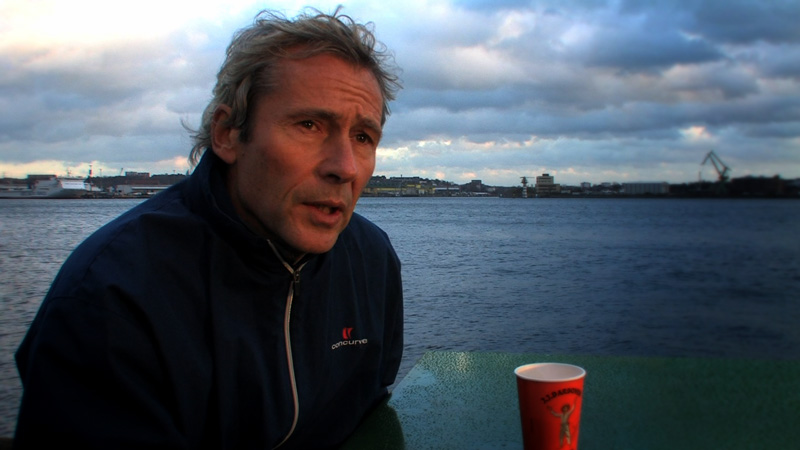 Claus Koehnlein, MD Claus Koehnlein, MD
Kiel, Germany
Physician
Claus Koehnlein was a specialist in internal medicine in the Dept. of Oncology, Univ. of Kiel, Germany between 1983 -1993. Since 1993, he has been in private practice, increasingly treating HIV- positive people who decline antiviral drugs.With his awareness of the detrimental side effects of chemotherapy, he grew skeptical of AZT type treatment for AIDS patients.Furthermore, in his words, "when the HIV test became widely available... clinically healthy people were candidates for chemotherapy".
Source:
Interview with Brent Leung
Contact Info:
Web: http://www.reviewingaids.com/awiki/index.php/Claus_Koehnlein
E-mail:
This e-mail address is being protected from spambots. You need JavaScript enabled to view it
|
|
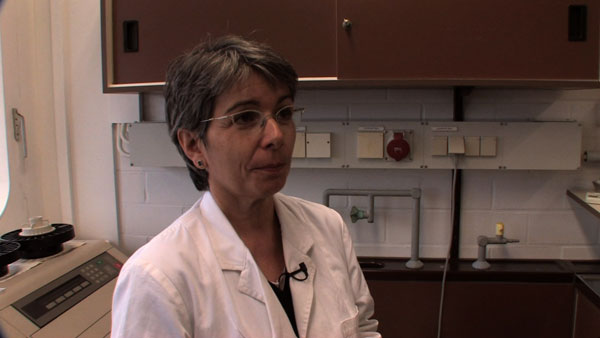 Claudia Kücherer, MD Claudia Kücherer, MD
Berlin, Germany
Molecular Biologist
In 1990, molecular biologist Claudia Kücherer joined the HIV diagnostic unit of the German Federal Health Ministry’s AIDS Center, headed by Dr. George Pauli. She was one of the initiators of the German HIV-1 seroconverter study launched in late 1997.
Since 2004 she has been Head of the Project Group “HIV variability and molecular epidemiology” at the Robert Koch Institute, Berlin. Research topics of her working group cover the virological and molecular genetic characterization of HIV strains circulating in Germany and the dynamics of incident HIV infections, particularly in relation to the spread of resistant HIV and HIV subtypes.
Dr. Kücherer publishes extensively in research journals around the world.
Source:
Correspondance with Brent Leung
http://www.rki.de/cln_100/nn_216794/EN/Content/Institute/DepartmentsUnits/ProjectGroups/P11/P11.html?__nnn=true
Contact Info:
Web: http://www.rki.de/EN/Home/homepage__node.html
E-mail:
This e-mail address is being protected from spambots. You need JavaScript enabled to view it
|
|
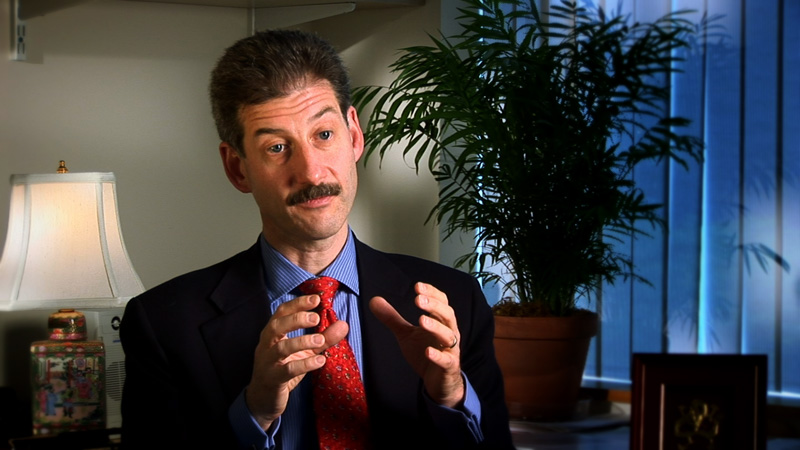 Daniel R. Kuritzkes, MD Daniel R. Kuritzkes, MD
Boston, MA, USA
Professor of Medicine
Dr Kuritzkes is Associate Professor of Medicine at Harvard Medical School and Director of AIDS Research, Brigham & Women's Hospital. He is also Head of the Section of Retroviral Therapeutics for the Harvard Division of AIDS and Principal Investigator of the Harvard Adult AIDS Clinical Trials Unit.
Dr Kuritzkes has published numerous articles on HIV antiretroviral therapy and has chaired several multicenter studies of HIV therapy. He also has published extensively on the problem of drug resistance in HIV infection and serves on the International AIDS Society - USA panel that developed guidelines for drug resistance testing. He has served on numerous NIH committees and chaired the HIV Disease Research Agenda Committee of the Adult AIDS Clinical Trials Group. Dr Kuritzkes is a member of the editorial boards of several journals and serves as an Associate Editor for The Journal of Infectious Diseases.
Source:
http://www.thebody.com/content/art15389.html
http://www.resist-hiv.info/resist-hiv/resistance-news--resistance-reporter--biographies.html
http://www.iasusa.org/corefaculty/profiles/kuritzkes.html
Contact Info:
Web: http://www.hms.harvard.edu/dms/virology/fac/Kuritzkes.html
E-mail:
This e-mail address is being protected from spambots. You need JavaScript enabled to view it
|
|
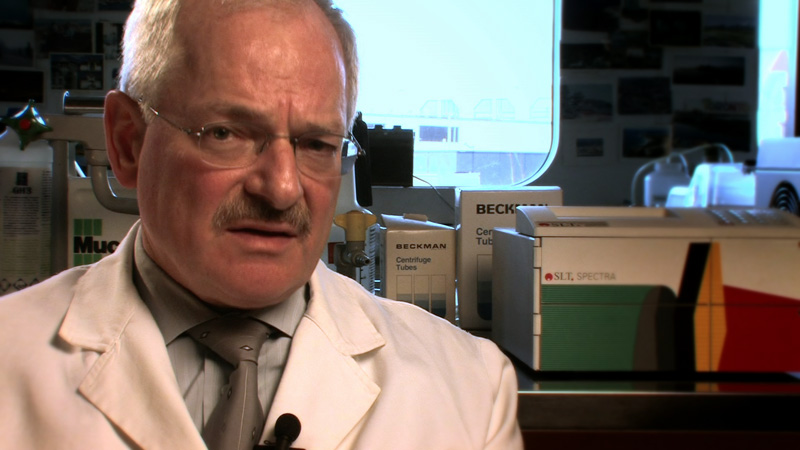 Prof. Reinhard Kurth, MD Prof. Reinhard Kurth, MD
Berlin, Germany
President, Robert Koch Institute 1996 - 2008
The virologist and physician Reinhard Kurth was director of the Robert Koch Institute in Berlin from 1996 until 2008 and of the Paul Ehrlich Institute in Frankfurt from 1986 until 1999. From 2004 until 2007, he was also, as director of the Robert Koch Institute, acting director of the Federal Institute for Drugs and Medical Devices in Bonn. Since 2004, he has also been president of the Foundation Council of the German Rheumatism Research Center in Berlin. At present he increasingly devotes himself to his recognized virology research.
His current research priorities include the interaction of immunological mediators, the development of an HIV vaccine, and the investigation of endogenous retroviruses of the pig, with emphasis on future xenotransplantation of porcine tissues or organs to humans.
Professor Kurth has received numerous scientific awards in recognition of his scientific accomplishments. He was appointed to the Berlin-Brandenburg Academy of Sciences and Humanities in 1998, the American Philosophical Society in 2005 and the German Academy of Sciences Leopoldina in Halle in 2008.
In recognition of his outstanding services in the fields of virology and immunology and for the successful development of the big federal institutes – the Paul Ehrlich Institute, the Robert Koch Institute and the Federal Institute for Drugs and Medical Devices – he was awarded the Grand Cross of Merit of the Federal Republic of Germany by the Federal President in 2005.
Source:
http://www.scheringstiftung.de/lang-en/deutsch/home/22-administratives/2293-neuer-stiftungsratsvorsitzender
|
|
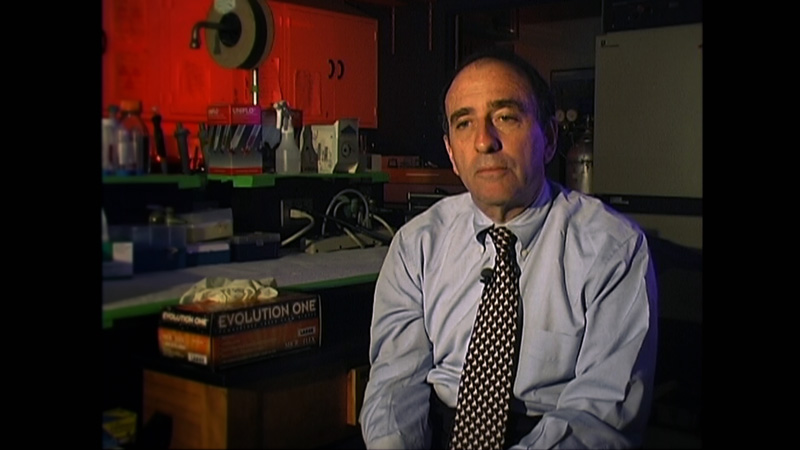 Jay Levy, MD Jay Levy, MD
San Francisco, CA, USA
Director, Laboratory for Tumor and AIDS Virus Research, University of California, San Francisco
For the past 18 years Dr. Levy and his group at the University of California, San Francisco (UCSF), have focused on biologic, immunologic, and molecular studies of the AIDS virus, emphasizing viral and immunologic features of HIV pathogenesis and long-term survival. Dr. Levy's group was one of the first to identify HIV as a D Type Virus, originally calling it the “AIDS-associated retrovirus,” (ARV). Dr. Levy is presently Professor in the Department of Medicine and Research Associate at the Cancer Research Institute, UCSF. Dr. Levy is the sole author of HIV and the Pathogenesis of AIDS, now in its third edition (2007).
Source:
http://labs.medicine.ucsf.edu/levylab/Dr.Levy.html
http://www.americansforcures.org/files/bios/Jay_Levy.html
Contact Info:
Web: http://labs.medicine.ucsf.edu/levylab/index.html
E-mail:
This e-mail address is being protected from spambots. You need JavaScript enabled to view it
|
|
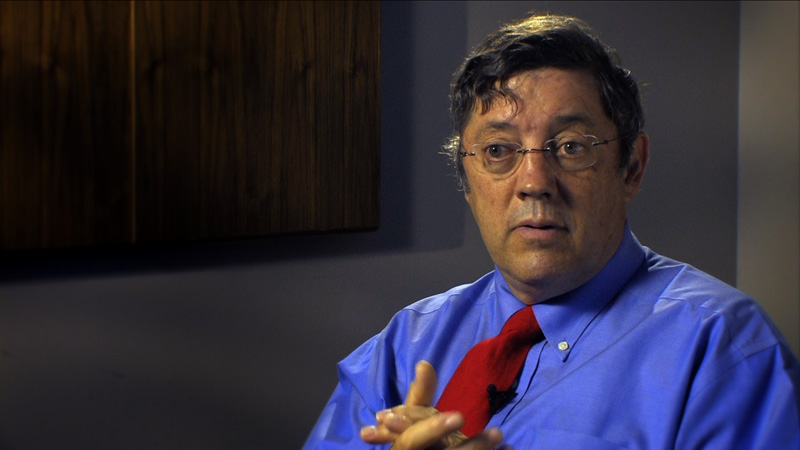 Joseph McCormick, MD Joseph McCormick, MD
Brownsville, TX, USA
Assistant Dean, University of Texas Health Science Center at Houston School of Public Health, Brownsville
In 1965, Dr. Joseph McCormick went to the Congo to teach math and science. Eighteen years later, McCormick - who had by that point become one of the Centers for Disease Control's "virus hunters" who investigate disease outbreaks around the world - returned to the Congo to study an outbreak that was believed to be the same disease causing the mysterious immune deficiency among gay men in the Western world. His September 1983 trip changed the framework of how people thought about the disease that would become known as AIDS; McCormick and his team confirmed 38 cases in Kinshasa, but more importantly, found an equal male-female ratio among the patients, which suggested the disease was being spread through heterosexual sex. However, he says his conclusions were greeted with "total denial" upon his return to the US. "I believe that an earlier and more visionary understanding of this … could have made a huge difference in our approach, in how we determined that we were going to learn about this disease and, probably more importantly, how we were going to support the effort to prevent the disease." McCormick is now professor and assistant dean at the University of Texas Houston School of Public Health.
Source:
http://www.pbs.org/wgbh/pages/frontline/aids/interviews/
Contact Info:
Web: http://www.uth.tmc.edu/gsbs/tutorial/mccormick.html
E-mail:
This e-mail address is being protected from spambots. You need JavaScript enabled to view it
|
|
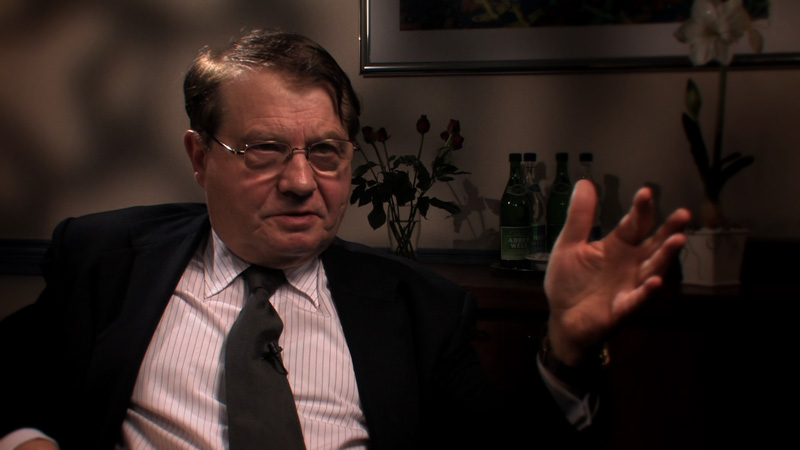 Professor Luc Montagnier, MD Professor Luc Montagnier, MD
Paris, France
2008 Nobel Prize Winner for Discovering HIV
Luc Montagnier is a French virologist and joint recipient with Françoise Barré-Sinoussi of the 2008 Nobel Prize in Physiology or Medicine for the discovery of the HIV. In 1982, Montagnier headed a team at the Pasteur Institute in Paris, (which included Francoise Barré-Sinoussi ), that was asked for assistance in establishing the possible viral cause of a mysterious new syndrome, AIDS. Willy Rozenbaum, a clinician at the Bichat Hospital in the French capital, had been openly suggesting that the disease could be caused by a retrovirus. In January 1983, he sent a lymph node biopsy from one of his patients to Montagnier's team at the Pasteur Institute.
Montagnier dissected the lymph node and made a culture from it. In the following weeks, Barré-Sinoussi and her assistants regularly analyzed the culture until they determined that retroviral enzymatic activity was responsible for the pathogenic effect of the virus on the white blood cells. Montagnier and his team named the responsible pathogen “lymphadenopathy-associated virus.” However, one year later a team led by the US physician Robert Gallo confirmed the discovery of the virus, but renamed it “human T-lymphotropic virus type III” (HTLV III). Credit for the discovery of the AIDS virus was a subject of controversy between Montagnier and Gallo, until French President Francois Mitterand and US President Ronald Reagan helped to forge an accord in which both men agreed to share the credit. In 1986, both the French and American names for the virus were dropped in favor of the term “human immunodeficiency virus” (HIV).
Dr. Montagnier’s subsequent research included seminal observations concerning the role of oxidative stress and infectious co-factors in the destruction of the immune system of HIV-infected patients. Besides his involvement in the design of new types of protective and therapeutic AIDS vaccines, his current studies are aimed at the diagnosis and treatment of analogous microbial and viral factors associated with cancers, neuro-degenerative and auto-immune diseases such as Alzheimer’s. A strong advocate of preventive medicine, Professor Montagnier is especially concerned with prolonging the active life of aging people. His extensive research interests and scientific expertise parallel his deep commitment to helping developing countries acquire knowledge of and access to both state-of-the-art preventive and curative medicine. As President of the World Foundation for AIDS Research and Prevention he has co-founded a center for the treatment, research and diagnosis of AIDS patients in Cote d'Ivoire, as well as supervising the creation of similar centers throughout Africa.
Source:
http://www.professorlucmontagnier.com/
http://www.monstersandcritics.com/news/europe/news/article_1435029.php/PROFILE_Luc_Montagnier_Francoise_Barre-Sinoussi_-_AIDS_pioneers_
Contact Info:
E-mail:
This e-mail address is being protected from spambots. You need JavaScript enabled to view it
|
|
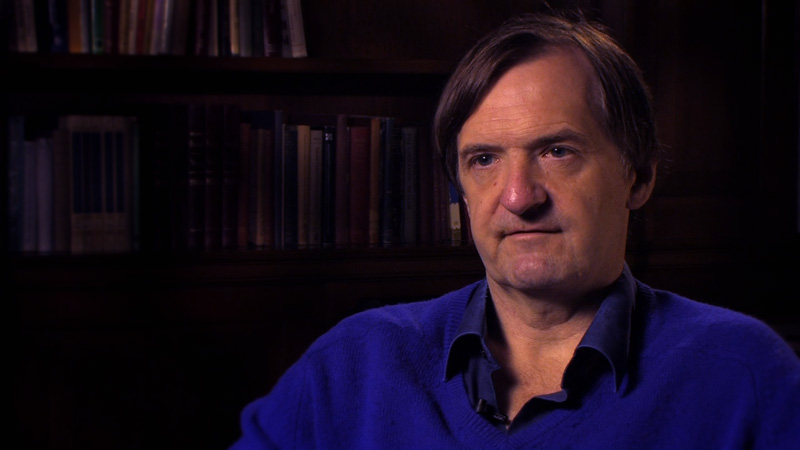 John P. Moore, PhD John P. Moore, PhD
New York, NY, USA
Professor of Microbiology and Immunology, Weill Cornell Medical College
Dr. Moore received his PhD from Cambridge University in 1982. He currently focuses his research on the processes by which HIV-1 uses its envelope glycoproteins to attach to, then fuse with, its target cells, predominantly CD4-positive T-cells, macrophages and
dendritic cells.
On June 4th, 2006 Dr. Moore published a piece in the New York Times entitled ”Deadly Quackery. “ He began the article by stating: "H.I.V. causes AIDS. This is not a controversial claim but an established fact, based on more than 20 years of solid science. It is as certain as the descent of humans from apes and the falling of dropped objects to the ground." Dr. Moore is an outspoken critic of the HIV skeptics.
Source:
http://www.nytimes.com/2006/06/04/opinion/04moore.html?_r=1&scp=4&sq=john%20moore&st=cse
http://www.med.cornell.edu/research/jpmoore/index.html
Contact Info:
Web: http://www.med.cornell.edu/research/jpmoore/biography.html
E-mail:
This e-mail address is being protected from spambots. You need JavaScript enabled to view it
|
|
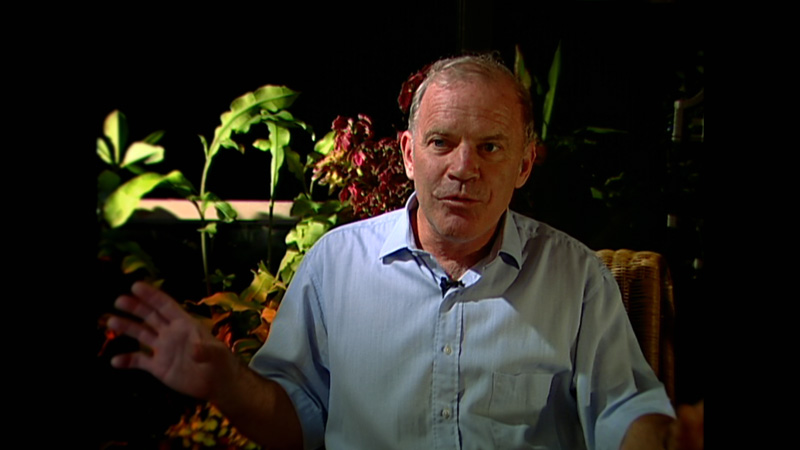 Kary Mullis, PhD Kary Mullis, PhD
Newport Beach, CA, USA
1993 Nobel Prize Winner in Chemistry
Kary Banks Mullis is a biochemist. In the 1980s, he invented the polymerase chain reaction (PCR), a central technique in molecular biology which allows the amplification of specified DNA sequences. He was awarded the Nobel Prize in Chemistry and the Japan Prize for this work in 1993. PCR, which was the theoretical basis for the novel and motion picture Jurassic Park because of its ability to extract DNA from fossils, is in reality the basis of a new scientific discipline, paleobiology.
Mullis has also drawn controversy for asserting that evidence simply does not exist that HIV causes AIDS. Mullis wrote in an introduction to Peter Duesberg's Inventing the Aids Virus (1997), "No one has ever proven that HIV causes AIDS. We have not been able to discover any good reasons why most of the people on earth believe that AIDS is a disease caused by a virus called HIV."
Dr. Mullis has written an autobiography, Dancing Naked in the Mind Field, published by Pantheon Books in 1998.
Source:
http://www.karymullis.com/
http://en.wikipedia.org/wiki/Kary_Mullis
Contact Info:
Web: http://www.karymullis.com/science.shtml
E-mail:
This e-mail address is being protected from spambots. You need JavaScript enabled to view it
|
|
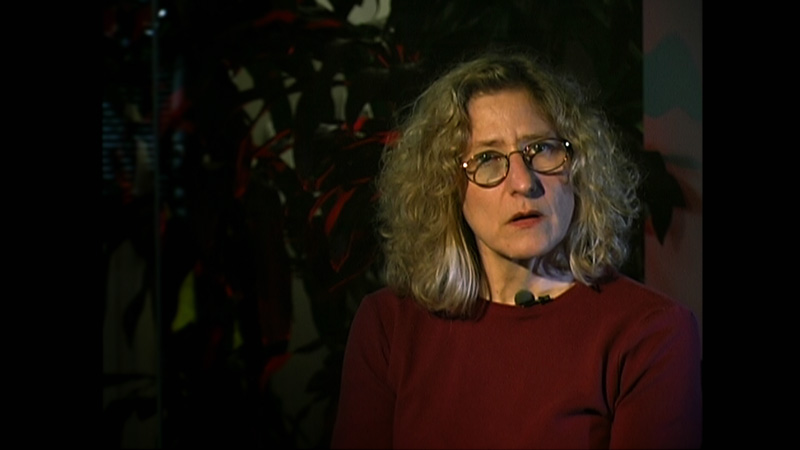 Nancy Padian, PhD, MPH Nancy Padian, PhD, MPH
San Francisco, CA, USA
Director, Women's Global Health Imperative
Senior Prevention Consultant, Pangaea Global AIDS Foundation
Dr. Padian is an internationally recognized expert in the heterosexual transmission of HIV and other STIs. For the last 17 years, she has developed and directed a range of research and intervention projects on STIs, HIV, and contraception in high-risk populations in the U.S. and internationally as executive director of the Women's Global Health Imperative at the University of California, San Francisco (UCSF). In 1994, she co-founded the University of Zimbabwe (UZ)-UCSF Collaborative Research Programme in Women's Health in Zimbabwe. Dr. Padian's current research focuses on developing and evaluating female-controlled methods for disease prevention, such as the diaphragm and microbicides, along with alternative strategies for fostering young women's economic independence to reduce their susceptibility to HIV, STIs, and unwanted pregnancies. She is an elected member of the Institute of Medicine, American Epidemiology Society, and the International Society for Sexually Transmitted Disease Research. She frequently consults for UNAIDS, WHO, and the World Bank on programs related to care, treatment, and prevention of HIV.
Source:
http://www.pgaf.org/staff/padian.html
http://www.rti.org/page.cfm/Womens_Global_Health_Imperative
Contact Info:
Web: http://www.rti.org/experts.cfm?objectid=D55E528E-BC09-4F59-88CB112962B98ABE
Web: http://ari.ucsf.edu/science/scientists_padian.aspx
E-mail:
This e-mail address is being protected from spambots. You need JavaScript enabled to view it
|
|
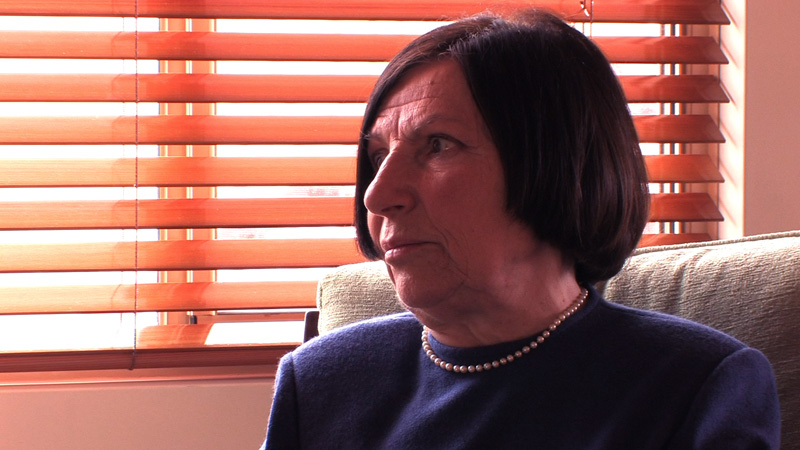 Eleni Papadopulos-Eleopulos, MSc Eleni Papadopulos-Eleopulos, MSc
& Dr. Valendar Turner, MD
Perth, Australia
The Perth Group
Nuclear and Biophysicist Eleni Papadopulos-Eleopulos is the leader of the Perth Group, founded in 1981 at the Royal Perth Hospital, teaching hospital for the University of Western Australia. Consisting of various research scientists and physicians, the Group has published scientific papers and letters questioning the conventional HIV/AIDS hypothesis. She has an MSc degree from the University of Bucharest, Rumania.
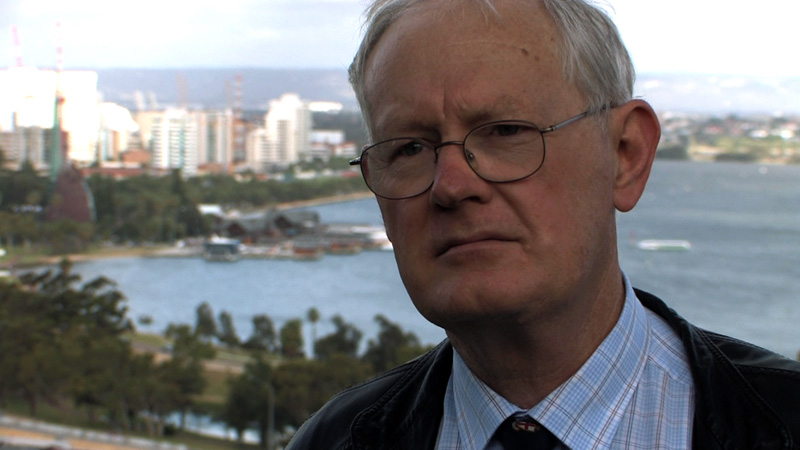 Dr. Valendar F. Turner is a founding member of the Perth Group. Dr. Turner is a Fellow of the Royal Australasian College of Surgeons, and a Foundation Fellow of the Australasian College for Emergency Medicine. Dr. Turner has published numerous papers questioning the validity of HIV tests and HIV's role in causing acquired immune deficiency, otherwise knows as AIDS. Dr. Valendar F. Turner is a founding member of the Perth Group. Dr. Turner is a Fellow of the Royal Australasian College of Surgeons, and a Foundation Fellow of the Australasian College for Emergency Medicine. Dr. Turner has published numerous papers questioning the validity of HIV tests and HIV's role in causing acquired immune deficiency, otherwise knows as AIDS.
Source:
http://www.theperthgroup.com/
http://pipl.com/directory/people/Eleni/Eleopulos
http://www.zoominfo.com/Search/PersonDetail.aspx?PersonID=45029443
Contact Info:
Web: http://www.theperthgroup.com/aboutpg.html
E-mail:
This e-mail address is being protected from spambots. You need JavaScript enabled to view it
|
|
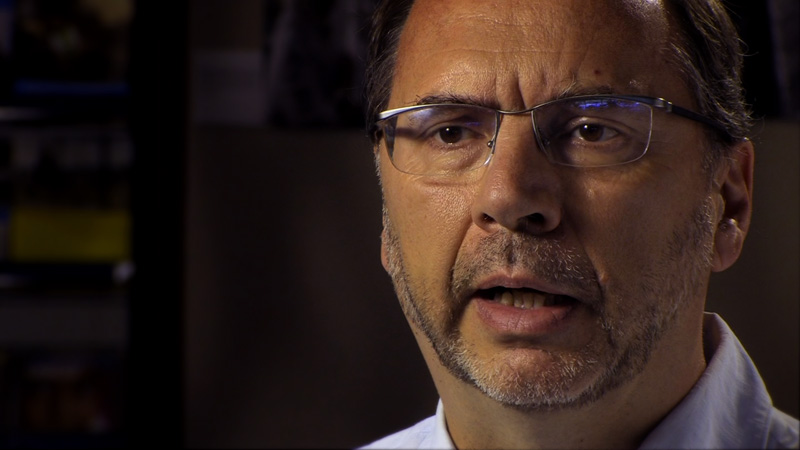 Peter Piot, MD, PhD Peter Piot, MD, PhD
London, England
Director, Institute for Global Health, Imperial College, London
Dr. Piot served as the executive director of UNAIDS for 13 years, from its creation in 1995 until his retirement in December of 2008. Trained as a microbiologist and physician, he was as well Under Secretary-General of the United Nations, and was ennobled as a Baron in 1995 by King Albert II of Belgium.
After graduating from medical school, Dr Piot co-discovered the Ebola virus in Zaire in 1976. In the 1980s Dr Piot launched and expanded a series of collaborative projects in Africa, in Burundi, Cote d’Ivoire, Kenya, Tanzania and Zaire. Projet SIDA (AIDS Project) in Kinshasa, Zaire, was the first international research project on AIDS in Africa, and is widely acknowledged as having provided the foundations of our understanding of HIV infection in Africa.
Drawing on his skills as a scientist, manager and activist, Dr Piot challenged world leaders to view AIDS in the context of social and economic development as well as security. Under his leadership, UNAIDS became the chief advocate for worldwide action against AIDS. It has brought together ten organizations of the United Nations system around a common agenda on AIDS, spearheading UN reform.
Dr. Piot is currently the director of the new Institute for Global Health at Imperial College London.
Source:
http://en.wikipedia.org/wiki/Peter_Piot
http://www.un.org/ga/aids/PeterPiot.html
http://topics.nytimes.com/top/reference/timestopics/people/p/peter_piot/index.html
Contact Info:
Web: http://www1.imperial.ac.uk/medicine/people/p.piot/
E-mail:
This e-mail address is being protected from spambots. You need JavaScript enabled to view it
|
|
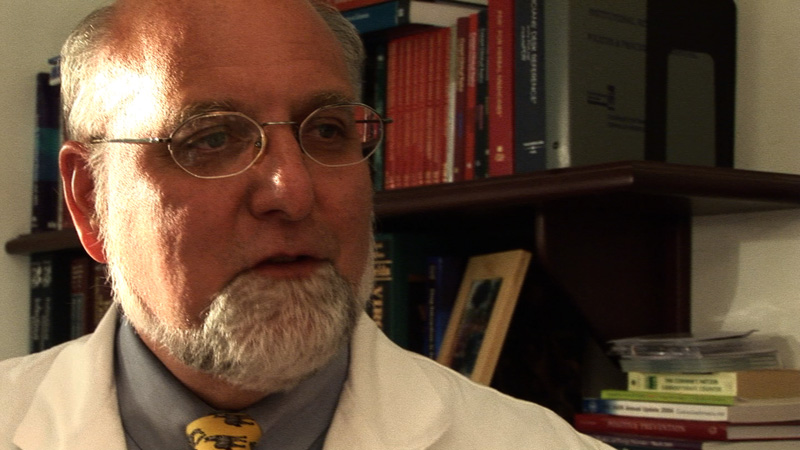 Robert R. Redfield, MD Robert R. Redfield, MD
Baltimore, MD, USA
Director of Clinical Care and Research
The Institute of Human Virology was co-founded by Dr. Robert R. Redfield, the IHV's Director of Clinical Care and Research. An Army researcher who worked with AIDS patients early in the epidemic, it was Dr. Redfield who first demonstrated the heterosexual transmission of the HIV virus, who developed the first clinical staging system - now used around the world - and who originated efforts to examine viral replication and viral load at all stages of disease.
Long at the forefront of therapeutic treatment for HIV infection, Dr. Redfield is a pioneer in clinical research whose most notable career accomplishments have been advocating the idea of translational research and the application of knowledge gained from laboratory-based studies to the actual patient population.
Source:
http://www.ihv.org/about/bios/redfield.html
Contact Info:
Web: http://www.ihv.org/about/bios/redfield.html
E-mail:
This e-mail address is being protected from spambots. You need JavaScript enabled to view it
|
|
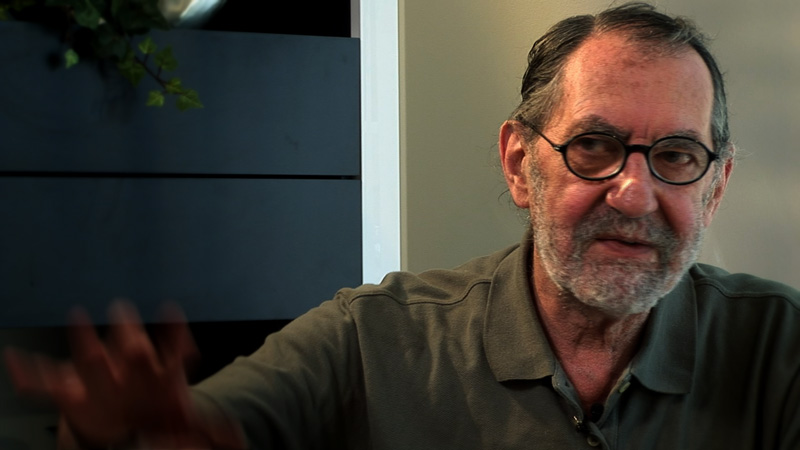 Joe Sonnabend, MD Joe Sonnabend, MD
London, England
Co-founder amfAR
Joseph Sonnabend, M.D. (born 1932 in South Africa) is a distinguished retired physician, scientist and AIDS researcher, notable for pioneering community-based research, the propagation of safe sex to prevent infection, and an early and unconventional multifactorial model (Co-factors) of AIDS. During the 1980s and 1990s he treated many hundreds of HIV positive people.
Dr. Sonnabend was one of the first physicians to notice among his gay male patients an immune deficiency that would later be named AIDS. Independently of government agencies he conducted some of the earliest research on the syndrome, and in 1983 founded one of the first AIDS journals, AIDS Research (renamed AIDS Research and Human Retroviruses in 1986, after Sonnabend's departure).
Prior to the identification of HIV as the cause of AIDS in 1984, Sonnabend's investigations led him to propose that AIDS among gay men was caused by multiple factors including Epstein-Barr virus and repeated exposure to cytomegalovirus and semen. This suggestion conflicted with the prevailing view that a single agent was responsible.
In the late 1980s, Sonnabend became a prominent critic of the use of AZT monotherapy to treat asymptomatic, HIV-positive people, which he thought was based on insufficient clinical evidence. Nevertheless he did prescribe the drug in short courses for people with indications of elevated interferon, which he believed might play an important role in pathogenesis and could be controlled by AZT. In 2006 he expressed his view that high doses of AZT had "killed thousands" during the late 1980s and early 1990s.
Until the late 1990s Sonnabend continued to assert that the issue of AIDS causation "remained open" and that many factors might be involved. This led some researchers and activists to associate him with "AIDS dissidents" who deny that HIV has any role in AIDS — a charge that Sonnabend refuted:
“I was kind of surprised to find myself on the outside. I had rather thought that I represented a kind of academic caution that I took for granted to be the norm. I always believed my criticisms were reasonable and not radical.”
Source:
http://en.wikipedia.org/wiki/Joseph_Sonnabend
Contact Info:
Web: http://aidsperspective.net
E-mail:
This e-mail address is being protected from spambots. You need JavaScript enabled to view it
|
|
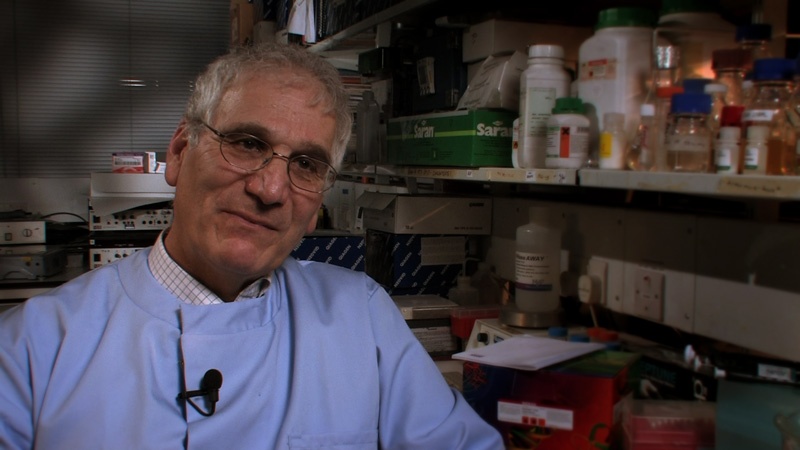 Robin Weiss, PhD Robin Weiss, PhD
London, England
Professor of Viral Oncology
Dr. Robin Weiss is Professor of Viral Oncology in the Department of Immunology and Molecular Pathology at University College London (UCL). After gaining a BSc in Zoology at UCL in 1961, he spent most of his career studying retroviruses, contributing to the discovery of viral genomes inherited as Mendelian traits in host DNA. In the 1970s, he worked with Peter K. Vogt in the USA and at the Imperial Cancer Research Fund, London, and from 1980–89 he was Director of the Institute of Cancer Research, Royal Marsden Hospital. He returned to UCL in 1999.
Professor Weiss has pioneered aspects of our understanding of HIV and AIDS, particularly on the identification of CD4 as the HIV receptor and on the analysis of neutralizing antibodies. He has also conducted research on AIDS-associated malignancies, and on pig viruses in relation to xenotransplantation (transplantation of living cells, tissues or organs from one species to another). He has been President of the British Association for Cancer Research and he is currently President of the Society for General Microbiology.
In 2007 Professor Weiss was awarded the prestigious Ernst Chain Award by Imperial College, in recognition of his pioneering work on HIV/AIDS. He is currently leading a $25 million international research consortium, funded by the Bill and Melinda Gates Foundation, in HIV vaccine discovery.
Source:
http://www.ori.nus.edu.sg/RobinWeiss.html
http://www.biomedexperts.com/Profile.bme/1527290/Robin_A_Weiss
http://www.ucl.ac.uk/news/news-articles/0709/07090602
Contact Info:
Web: http://windeyer.ucl.ac.uk/inf/robin.html
E-mail:
This e-mail address is being protected from spambots. You need JavaScript enabled to view it
|
|
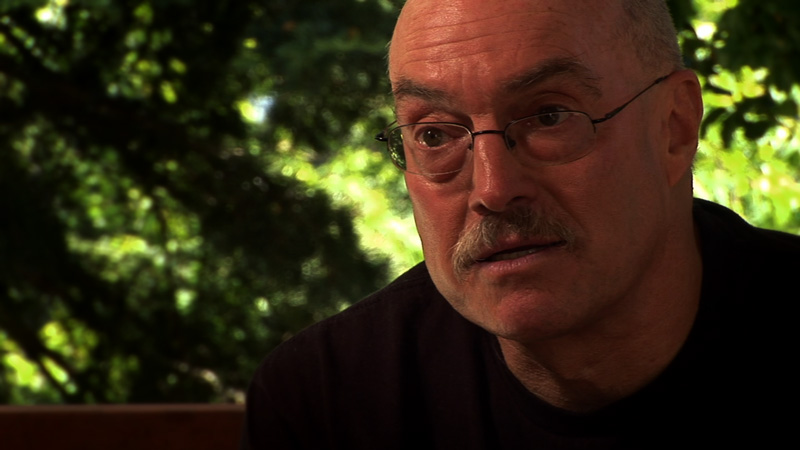 Hank Wilson Hank Wilson
AIDS Activist
(April 29, 1947 - November 9th, 2008)
Hank Wilson was an "activist's activist"; he was at the forefront of the gay liberation movement in San Francisco for three decades. Wilson waged a one-man crusade against the use of "poppers," the nitrite compounds inhaled almost entirely by "fast track" male homosexuals as bathhouse aphrodisiacs and muscle relaxants. Wilson had taken up this cause after friends who used poppers heavily began suffering swollen lymph nodes, which had led him to research the chemical nature of the nitrites. He founded the Committee to Monitor Poppers in 1981, warning homosexuals of the dangers and lobbying for legal bans on the substance.
Mr. Wilson's AIDS was diagnosed early in the epidemic, and he developed many infections. However, in the end it was lung cancer that killed Mr. Wilson, a non-smoker.
Source:
http://en.wikipedia.org/wiki/Hank_Wilson
|
|































 Dr. Valendar F. Turner is a founding member of the Perth Group. Dr. Turner is a Fellow of the Royal Australasian College of Surgeons, and a Foundation Fellow of the Australasian College for Emergency Medicine. Dr. Turner has published numerous papers questioning the validity of HIV tests and HIV's role in causing acquired immune deficiency, otherwise knows as AIDS.
Dr. Valendar F. Turner is a founding member of the Perth Group. Dr. Turner is a Fellow of the Royal Australasian College of Surgeons, and a Foundation Fellow of the Australasian College for Emergency Medicine. Dr. Turner has published numerous papers questioning the validity of HIV tests and HIV's role in causing acquired immune deficiency, otherwise knows as AIDS. 




